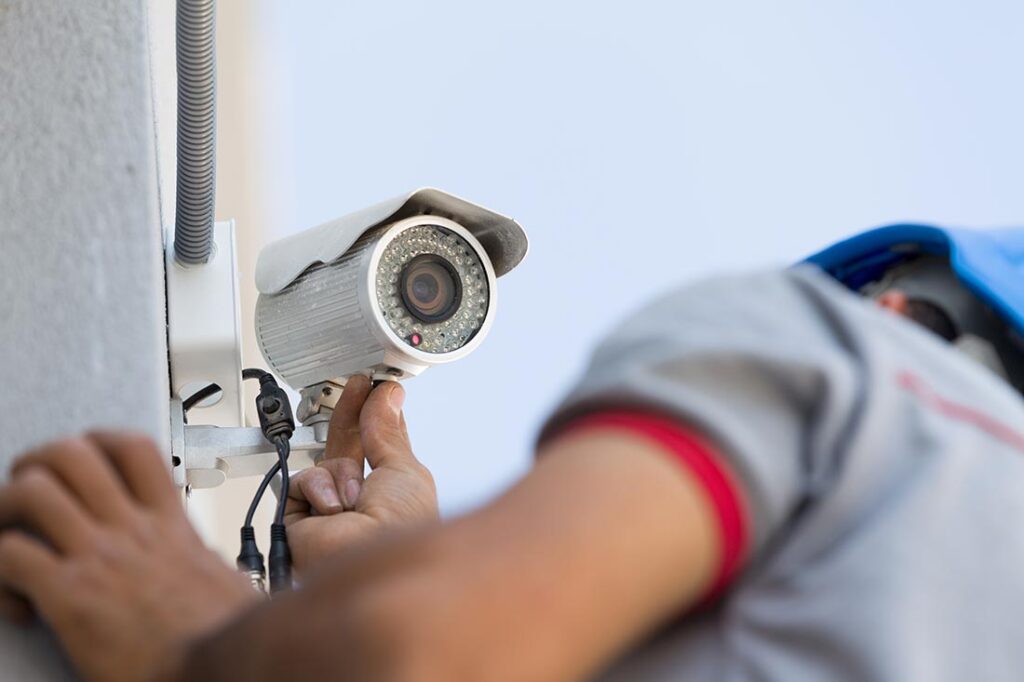Privacy is on everyone’s mind lately: There’s always a new headline about hacked data, stolen identities, and general examples of how modern technology isn’t always safe when personal data is concerned.
That leads to a rising number of questions from clients who are interested in a new alarm or security system, but are wary of technology that may infringe on their privacy or collect data without them knowing. That can put alarm installers in an awkward position, especially if they are trying to recommend products or upgrades. Here are several topics that can help with these common conversations.
Cloud Storage Usually Isn’t a Necessity
Cloud data often leads to worries that companies will collect information about their customers or use stored video cam footage for their own ends. If this comes up, there are a couple of important points to make. First, while security companies do sometimes cloud data to improve their AI systems and other software, there is typically an option to opt out of this process, along with guarantees that data will be deleted after a specific time (every system has its own policies, but if you know of a manufacturer that does this well, this is a good opportunity to recommend them).
Second, cloud storage is not required to manage video data. There is always the option to save video locally, either to a security hub (very fitting for commercial systems that may incorporate security guards as well), or to an attached microSD card or external hard drive. This keeps data out of the cloud and free from any related privacy concerns.
Security Systems Don’t Always Need Cams
If a client is specifically concerned about installing video cameras as part of a security system, you can let them know that there are alternative options. Residential-friendly options like Minut specifically avoid video cameras and audio capture to improve privacy, instead only collect data on noise levels, motion detection, temperature, and related things. It’s entirely possible to put together a security system that doesn’t collect audio or visual data, while still providing the monitoring and alarms that the client wants. Some systems even use less-intrusive thermal cameras for monitoring without direct video footage. A little creativity, along with the right sensors, can go a long way!
Physical Devices Can Be Switched Off
Several years ago, many new security devices hitting the market were “always-on,” or at least difficult to off, especially if they included voice assistants or similar features. When consumers began to complain about this, the industry did a quick about-face and changed their designs. Today, a wide variety of security devices can be manually turned off, completely disconnected, shutter, muted, or in other ways rendered inert. This can help quell any fears about devices automatically listening to conversations or taking video footage when an owner doesn’t want them to.
Privacy Rights Vary, But Notification Is a Good Place to Start
If a client’s concern is primarily about liability or angry customers/employees, it may be time to talk about privacy laws. Specific privacy laws can vary from state to state and can change over time, so we recommend keeping track of the current laws in your state so you can explain them to clients when necessary.
In general, providing notification such as clear signs that an area is under surveillance is enough for commercial organizations to satisfy privacy laws, a simple step that’s relatively easy to implement, which the installer can generally handle as part of the installation process.
Privacy Compliance is Important When Incorporating Personal Information
More complex commercial systems may tap into personal data like employee contact information for emergency alerts. If this is the case, the organization should understand that their IT and HR departments are responsible for making sure this private data is compliant with privacy regulations. On the residential side, some communities may require camera masking for outward-facing security cams, which is an easy requirement to meet if necessary.
Security Devices Can Be Hacked, But It’s Rare
It’s best to be honest: Security devices like cams can be hacked. However, it’s also important to point out that this is a rare occurrence, not a trend. There is generally very little valuable information a random hacker can get from hacking a security cam (especially commercial security cams, where there isn’t even a chance for blackmail), so it’s just not a popular move.
When hackers do target security systems, they don’t try to hack a specific system or device. Instead, they hack the company that makes or manages these systems to try and access the data stored on their servers. That’s why it’s important to pick a trustworthy brand with a history of good security practices when choosing a particular system.
Conclusion
Don’t let privacy concerns turn away a potential buyer or client away from a security installation project. In almost every case, there is an alternative option that will help preserve privacy, from avoiding systems that collect certain kinds of data to relying on local storage instead of cloud storage. Focusing on these options can help installers offer the right advice and products for the situation and deal with specific client concerns as needed.






